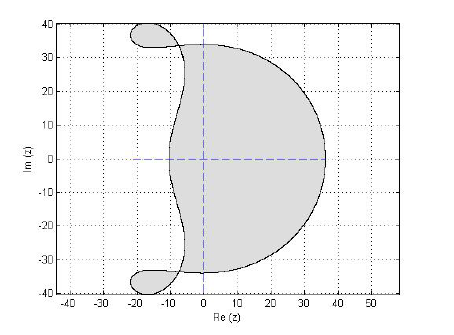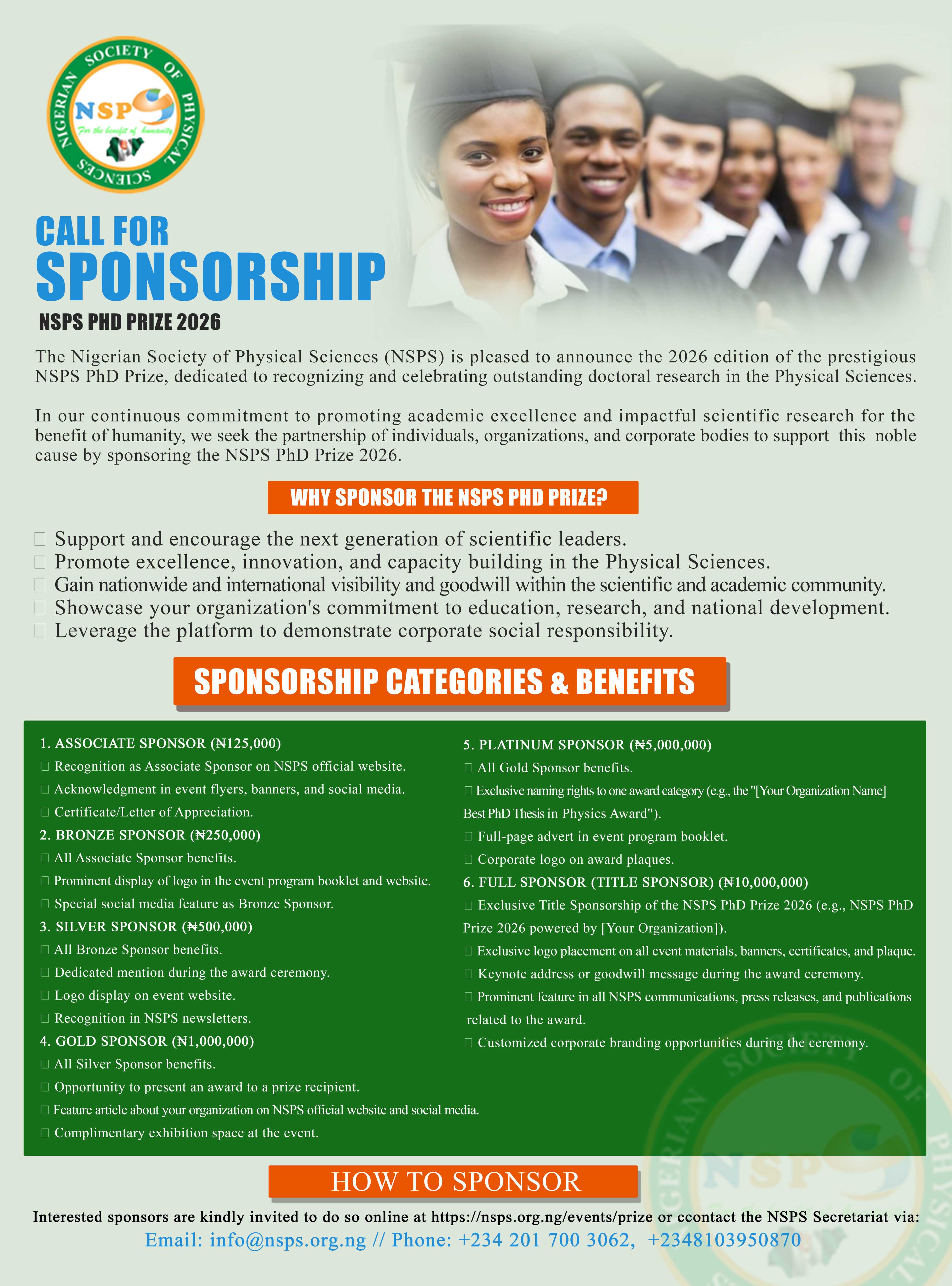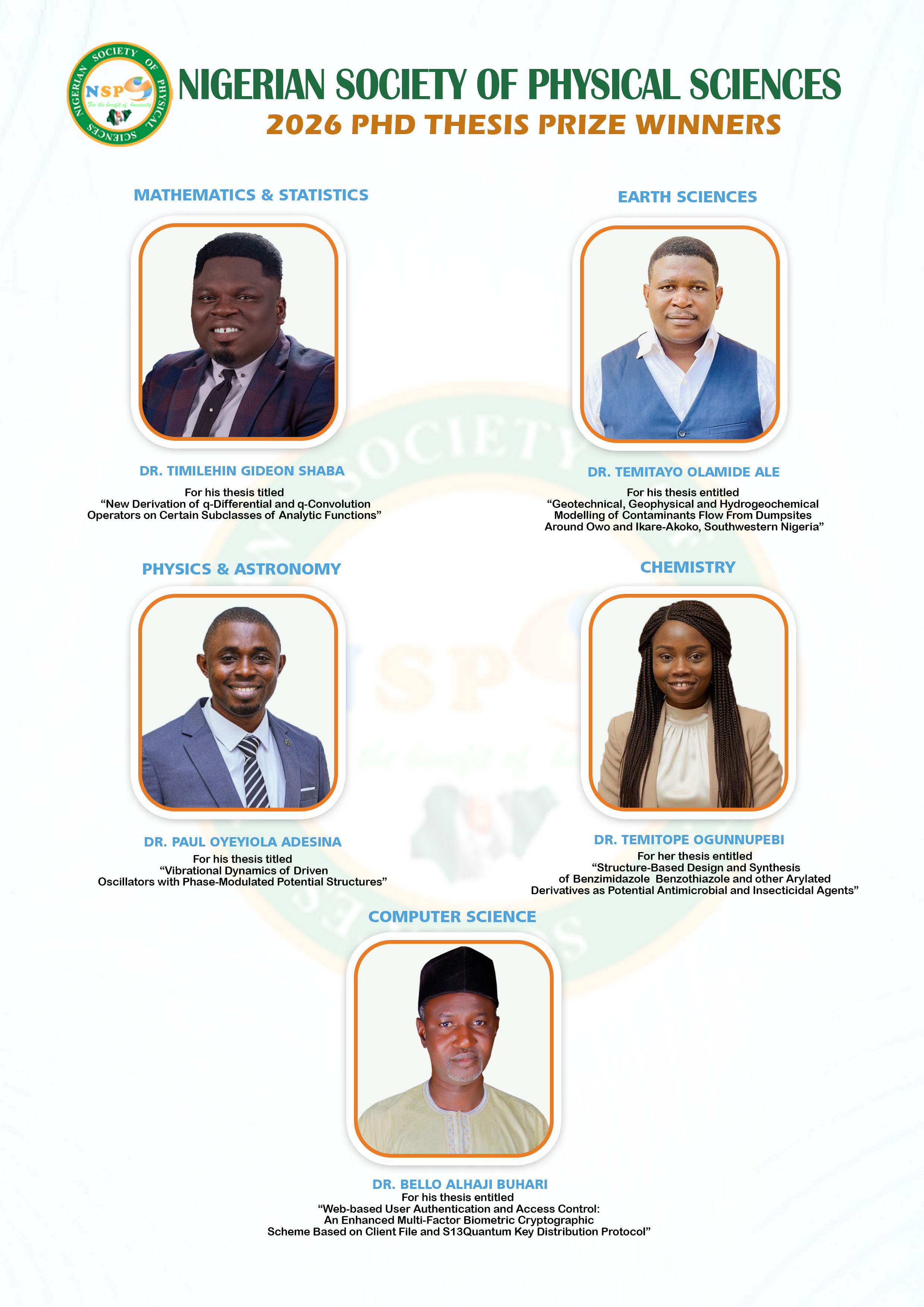A Class of Block Multi-derivative Numerical Techniques for Singular Advection Equations
Keywords:
Advection equations, Singular point, Multi-derivative, Conservation law, off-step pointAbstract
The integration of some differential equations is hard to acquire because of the presence of singular point(s) in these equations. These equations are best solved by some unique technique. Multi-derivative techniques have a long history of powerful integration of such equations yet till date, a couple of class of this technique has been explored for integrating partial differential equations. This work centers around the development, analysis, and implementation of a class of multi-derivative technique on partial differential equations. The approaches were effectively analyzed and were turned out to be consistent, stable and convergent. Numerical outcomes got likewise demonstrated the approximation quality of the technique over existing techniques in the literature.

Published
How to Cite
Issue
Section
Copyright (c) 2019 Journal of the Nigerian Society of Physical Sciences

This work is licensed under a Creative Commons Attribution 4.0 International License.
How to Cite
Similar Articles
- Danat Nanle Tanko, Farah Aini Abdullah, Majid K. M Ali, Matthew O. Adewole, James Andrawus, Onchocerciasis control via Caputo-Fabrizio fractional dynamics: a focus on early treatment and vector management strategies , Journal of the Nigerian Society of Physical Sciences: Volume 8, Issue 1, February 2026 (In Progress)
- Vanita R. Raikar, Lakshminarayanachari K, K. Bharathi, C. Bhaskar , Mathematical advection-diffusion model of primary and secondary pollutants emitted from the point source with mesoscale wind and removal mechanisms , Journal of the Nigerian Society of Physical Sciences: Volume 7, Issue 2, May 2025
- J. O. Kuboye, O. R. Elusakin, O. F. Quadri, Numerical Algorithms for Direct Solution of Fourth Order Ordinary Differential Equations , Journal of the Nigerian Society of Physical Sciences: Volume 2, Issue 4, November 2020
- S. E. Fadugba, S. N. Ogunyebi, B. O. Falodun, An Examination of a Second Order Numerical Method for Solving Initial Value Problems , Journal of the Nigerian Society of Physical Sciences: Volume 2, Issue 3, August 2020
- S. A. Agunbiade, J. U. Abubakar, T. L. Oyekunle, M. T. Akolade, Stagnation point flow of viscous nanofluid towards a shrinking sheet with quadratic buoyancy and thermophoresis influence: convection through porous media , Journal of the Nigerian Society of Physical Sciences: Volume 6, Issue 3, August 2024
- Richard O. Akinola, Ezekiel O. Omole, Joshua Sunday, Stephen Y. Kutchin, A ninth-order first derivative method for numerical integration , Journal of the Nigerian Society of Physical Sciences: Volume 7, Issue 1, February 2025
- Sunday Emmanuel Fadugba, Solution of Fractional Order Equations in the Domain of the Mellin Transform , Journal of the Nigerian Society of Physical Sciences: Volume 1, Issue 4, November 2019
- D. C. Iweobodo, G. C. Abanum, O. Ogoegbulem , N. I. Ochonogor, I. N. Njoseh, Discretization of the Caputo time-fractional advection-diffusion problems with certain wavelet basis function , Journal of the Nigerian Society of Physical Sciences: Volume 7, Issue 3, August 2025
- Kazeem Issa, Risikat A. Bello, Usman Jos Abubakar, Approximate analytical solution of fractional-order generalized integro-differential equations via fractional derivative of shifted Vieta-Lucas polynomial , Journal of the Nigerian Society of Physical Sciences: Volume 6, Issue 1, February 2024
- K. Issa, A. S. Olorunnisola, O. T. Aliu, A. D. Adeshola , Approximate solution of space fractional order diffusion equations by Gegenbauer collocation and compact finite difference scheme: Solution of space fractional diffusion equation , Journal of the Nigerian Society of Physical Sciences: Volume 5, Issue 2, May 2023
You may also start an advanced similarity search for this article.
Most read articles by the same author(s)
- M. O. Ogunniran, O. A. Tayo, Y. Haruna, A. F. Adebisi, Linear Stability Analysis of Runge-Kutta Methods for Singular Lane-Emden Equations , Journal of the Nigerian Society of Physical Sciences: Volume 2, Issue 3, August 2020






